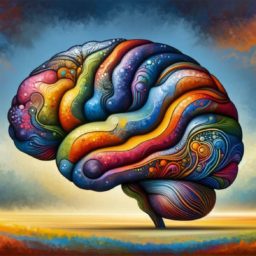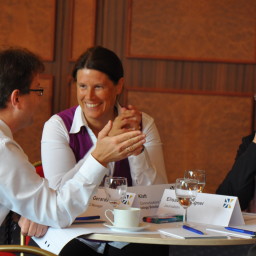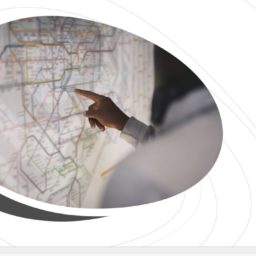
Productive disagreement depends on how people feel about each other. We spend a lot of time thinking about how to argue, and not enough on how to shape the relationship that will define how the engagement goes. It’s often said that in order to disagree well, people need to put emotions aside and think purely rationally, but this is a myth. … | Ian Leslie Continue reading Productive Disagreement Depends on How People Feel About Each Other Ian Leslie

Our spoken language allows us to do more than just share information — it enables us to think and reason together. | David Gurteen Continue reading Our Spoken Language Enables Us to Think Together David Gurteen

video player How can groups make good decisions? | Mariano Sigman and Dan Ariely Mariano closes this talk with the . You can read the transcript below. Partial Transcript Good collective decisions require two components: deliberation and diversity of opinions. Right now, the way we typically make our voice heard in many societies is through … Continue reading How Can Groups Make Good Decisions? Mariano Sigman and Dan Ariely (2017)

The Argumentative Theory of Human Reason | THUNK Reasoning was not designed to pursue the truth. Reasoning was designed by evolution to help us win arguments. Posts that link to this post What Are Cognitive Biases? Mistakes in reasoning, evaluating or rememberingTags: argument (33) | reasoning (53) | social reasoning (19)Google Web Search Photo Credits: Midjourney ()This … Continue reading The Argumentative Theory of Human Reason Reasoning was designed by evolution to help us win arguments

In this book, Conflicted, Ian Leslie draws essential lessons on how to disagree well from world-class experts: interrogators, hostage negotiators, divorce mediators, diplomats, and addiction counselors. It tells inspiring stories of productive disagreements, from the invention of the airplane to the success of The Rolling Stones, and combines them with fascinating insights from the science … Continue reading Conflicted: Why Arguments Are Tearing Us Apart and How They Can Bring Us Together by Ian Leslie (2021)

Conflicted | Ian Leslie and Russ Roberts Ian Leslie talks about his book Conflicted with EconTalk host Russ Roberts. Ian argues that far from being a negative thing, conflict is often the essential ingredient that helps us get to the right answer or best solution. Because some of our best thinking comes in collaboration with … Continue reading Ian Leslie on Conflicted Ian Leslie (2021)

No truth is without some mixture of error, and no error so false but that it possesses no element of truth. If a man is in too big a hurry to give up an error, he is liable to give up some truth with it, and in accepting the arguments of the other man he is sure to get some errors with it. Honest argument is merely a process of mutually picking … | Wilbur Wright Continue reading No Truth Is Without Some Mixture of Error by Wilbur Wright

We don’t have a good word for engaging in a non-hostile disagreement with the shared aim of moving the participants towards a new understanding, better decision or new idea. Debate implies a competition with winners and losers. Argument comes tinged with animosity. Dialogue is too bland. Dialectic is too obscure. We talk about argument as if it is … | Ian Leslie Continue reading We Don’t Have a Good Word for Engaging in a Non-hostile Disagreement Ian Leslie

Imagine a culture where an argument is viewed as a dance, the participants are seen as performers, and the goal is to perform in a balanced and aesthetically pleasing way. In such a culture, people would view arguments differently, experience them differently, carry them out differently, and talk about them differently. But we would probably not … | George Lakoff and Mark Johnsen Continue reading Imagine a Culture Where an Argument Is Viewed as a Dance George Lakoff and Mark Johnsen

Our research shows that when students learn how to use talk to reason together, they become better at reasoning on their own. | Neil Mercer Continue reading Using Talk to Reason Together Neil Mercer

Anecdote Circles Brainstorming Close Pop-up all posts in this chapter What’s the Vibe? Please be patient as this may take up to a minute to load… Close In challenging conversations, differing viewpoints can lead to tension and misunderstandings. A conversation covenant offers a structured approach to ensure respectful, constructive dialogue. By establishing agreed-upon guidelines, it … Continue reading Conversation Covenant Creating a psychologically safer space for difficult conversations

Knowledge and Information ** The Knowledge Delusion Close Pop-up all posts in this chapter What’s the Vibe? Please be patient as this may take up to a minute to load… Close The argumentative theory of reasoning proposes that reason did not evolve to help us to reason individually but to reason together – in other … Continue reading The Argumentative Theory of Human Reason We did not evolve to reason individually but to reason socially

Conversare Events The Dérive Close Pop-up all posts in this chapter What’s the Vibe? Please be patient as this may take up to a minute to load… Close Debates are an essential part of communication, allowing for the exchange of differing viewpoints. However, understanding their various forms and purposes can be challenging. By exploring the … Continue reading Understanding Debates Argument is meant to reveal the truth, not to create it

The Dérive Dialogic Organization Development Close Pop-up all posts in this chapter What’s the Vibe? Please be patient as this may take up to a minute to load… Close The meaning of dialogue The word dialogue has several meanings depending on the context in which it is used. If you look up the word in … Continue reading Dialogue Dialogue is a disciplined form of conversation

The Power of Team Huddles Ongoing Performance Conversations Close Pop-up all posts in this chapter What’s the Vibe? Please be patient as this may take up to a minute to load… Close The Oracy Lab is an experimental space for exploring the power and possibilities of conversations and spoken communication for conveying meaning and co-creating … Continue reading The Oracy Lab An experimental space for exploring the power and possibilities of conversations

Speak with Less Conviction Reduce Emailing and Texting ** Close Pop-up all posts in this chapter What’s the Vibe? Please be patient as this may take up to a minute to load… Close Disagree constructively: Disagreement is an inevitable part of life. Most of the time, we do it poorly. We need to learn to … Continue reading Disagree Constructively How to disagree well

Become a Conversation Architect Rediscovering Rhetoric Close Pop-up all posts in this chapter What’s the Vibe? Please be patient as this may take up to a minute to load… Close In education, considerable emphasis is placed on numeracy and literacy — understanding and working with numbers and reading and writing. But what about the capacity … Continue reading Oracy The ability to express oneself in and understand spoken language










